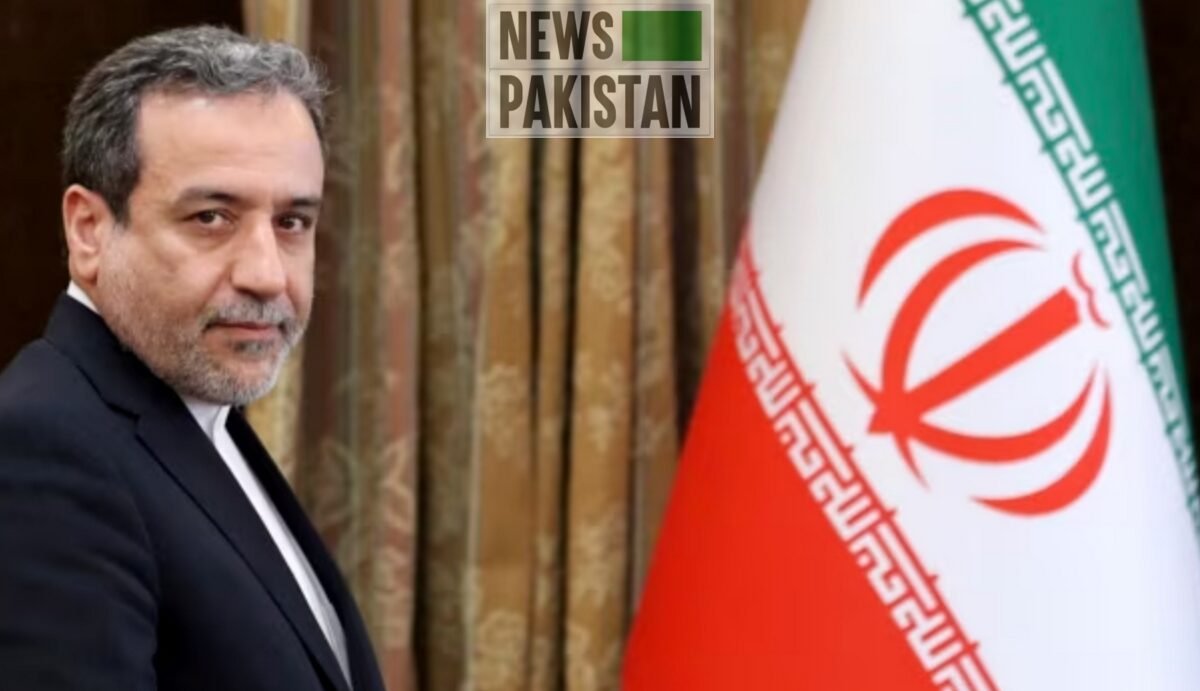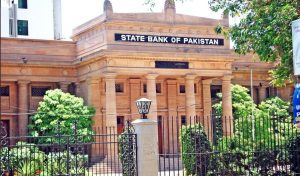ISLAMABAD: The Supreme Court Thursday declared the ruling by the NA deputy speaker “unconstitutional” and ordered the restoration of National Assembly and the Cabinet, besides asking the House to meet till Saturday to proceed with the vote of no-confidence against the prime minister.
The judgement was signed by Chief Justice of Pakistan Umar Ata Bandial, Justice Ijaz ul Ahsan, Justice Mazhar Alam Khan Miankhel, Justice Munib Akhtar and Justice Jamal Khan Mandokhail.
Earlier in the day, Pakistan Muslim League-Nawaz President appeared before the bench and pleaded the court to void the deputy speaker’s ruling, as it would automatically end the NA’s dissolution and revive the no-confidence motion.
He said he had only one request to restore the NA for the sake of Allah Almighty and Pakistan. The uncertain situation in the country was created because of the blunders of the past, which should be rectified.
Chief Justice Bandial at one point referred to the situation in Sri Lanka and said the country did not even have money for electricity and other basic facilities. Today, the value of rupee against the dollar had reached Rs190.
Justice Mandokhail observed that the opposition wanted fresh elections from the day one and asked what they wanted now in that regard.
The chief justice also said the opposition had always demanded new elections and asked as to why they were now not agreeing to that option.
Shehbaz Sharif said the joint opposition wanted to first introduce electoral amendments for transparent elections in future.
The Attorney General for Pakistan said everyone wanted a prime minister elected by the people, not by the assembly. The opposition should let their demand for fresh polls be fulfilled.
Upon this, the Chief Justice remarked that the bench knew about this.
PML-N counsel Makhdoom Ali Khan said he had an idea that the court would debate the issue of elections in the end. It was was not possible to defend the speaker’s ruling. Haji Saifullah case was an example, he added.
Chief Justice Bandial observed it was clear that the deputy speaker’s April 3 ruling was erroneous.
The AGP said he would not be able to give details of the recent meeting of the National Security Committee in an open courtroom. He asserted that the court could issue an order without questioning anyone’s loyalty.
He argued that the prime minister was the biggest stakeholder and, therefore, had the power to dissolve the NA. The prime minister did not need to give reasons for dissolving the assembly, he added.
He pointed out that the assembly would stand dissolved if the president did not make a decision on the prime minister’s advice within 48 hours.
He argued that voting on the no-confidence motion was not the fundamental right of a lawmaker. It was subject to the Constitution and assembly rules. If the NA speaker suspended any member, they could not approach a court against it.
The Chief Justice asked whether the AGP was trying to say that voting on the no confidence motion was subject to the rules. The AGP replied that all the NA proceedings, including the no-confidence motion, were carried out in accordance with the rules.
He said there was no firewall that gave complete immunity to the parliamentary proceedings. The court should decide the extent to which the parliamentary proceedings could be reviewed, he added.
The court, he said, could intervene if the speaker declared a person with the minority number of votes to be the prime minister.
Justice Munib Akhtar remarked that the speaker was the caretaker of the House and he (speaker) was not there for his personal satisfaction. The speaker could not just impose his opinion and ignore the members, he observed.
The AGP responded that political parties played an important role in a parliamentary system of government. It was the assembly that had a term limit, not its members.
Senator Ali Zafar, the president’s counsel, was asked by Justice Miankhel if the prime minister was the people’s representative. The lawyer replied in the affirmative.
Justice Miankhel asked whether the PM had the protection if the Constitution was violated in the parliament, and whether the parliament was not the guardian of the Constitution.
He also questioned how justice would be awarded in case someone was affected due to the parliamentary proceedings.
Ali Zafar replied that the Constitution must be protected in accordance with the rules it underlined. In order to protect the Constitution, each and every article had to be kept in mind.
Chief Justice Bandial asked what would happen when injustice was carried out against the entire assembly, not just one member.
He also asked whether the formation of the federal government was an internal matter of Parliament.
Ali Zafar said the no-confidence motion and the prime minister’s election fell within the ambit of Parliament. The National Assembly was formed for the purpose of appointing a speaker and a prime minister.
He referred to former prime minister Mohammad Khan Junejo’s case, who was dismissed by the then president Ziaul Haq. His government’s dismissal was latter declared by the court unconstitutional.
Justice Miankhel, however, said the matter at present concerned the no-confidence motion. “A ruling came after the motion. Address this issue,” he asked Ali Zafar.
CJP Bandial said the verdict he was referring to was related to the oath. He asked Ali Zafar as to why he was not explaining whether or not there was a constitutional crisis in the country.
Zafar replied that there was no constitutional crisis in the country.
The CJP observed that it seemed to be a violation of Article 95. He noted that holding elections cost the nation billions of rupees.
Ali Zafar argued that the announcement of election showed that there was no malice behind the government’s move.
Justice Mandokhail questioned whether the prime minister could advise the president to dissolve the assembly if a majority of the members opposed it.
Justice Ahsan noted that the PTI still held the majority despite the recent defections.
Ali Zafar said the president’s counsel could not comment on political matters and ended his arguments.
Imtiaz Siddiqui, counsel for Prime Minister Imran Khan, said the judiciary had not interfered in the parliamentary proceedings in the past, and the matter at hand concerned the NA proceedings. The court should tell the parliament to settle its matters itself, he pleaded.
He said the opposition had not objected to the deputy speaker chairing the session. The deputy speaker gave the ruling according to what he had thought was the best. He was not accountable to the court for the ruling. Under Article 69, the apex court could not interfere in the parliamentary proceedings.
Justice Akhtar noted that verdicts referenced concerned observations made by the courts. The apex court was not bound by the observations given in the verdicts.
Siddiqui said the deputy speaker had relied on the assessment of the National Security Committee (NSC). He said that no one could influence the top forum.
The CJP asked when the minutes of NSC meeting were presented before the deputy speaker. Siddiqui replied that he was unaware about the matters concerning the deputy speaker.
Justice Ahsan remarked that if the assembly was not dissolved, the House could have suspended the deputy speaker’s ruling. The prime minister took advantage of the situation and dissolved the assembly, he added.
Siddiqui argued that if the aim was to harm the Constitution, the deputy speaker could have suspended the membership of the dissident lawmakers. The prime minister did not show any malice, he added.
He said no plan was hatched to dismiss the no-trust motion. He said that the government dissolved its government. He quoted the prime minister as saying that he would never have ended his government if there was any malice behind his actions.
He said according to Imran Khan, billions were spent on holding elections and he was going to the nation against those who had ruled the country for many years.
Justice Mandokhail said even though Deputy Speaker Qasim Suri announced the ruling which dismissed the no-confidence motion against Prime Minister Imran Khan. The ruling was signed by Speaker Asad Qaiser.
He made the observation as lawyer of Qasim Suri and Asad Qaiser, Naeem Bukhari, presented his arguments.
Naeem Bukhari said perhaps the documents given to him might not be original.
Justice Mandokhail said the minutes of the parliamentary committee meeting, which were submitted to the court by Bukhari, did not prove if the deputy speaker was present.
He asked whether the foreign minister was present during the parliamentary committee’s meeting, noting that his signature was not included in the record. The foreign minister should also have been present in the meeting.
Chief Justice Bandial said the name of National Security Adviser Moeed Yusuf was also not included in the record.
Bukhari said he would focus on whether a point of order could be discussed at any time. He argued that the apex court had refrained from interfering in the parliamentary proceedings in the past and asked whether the court would have taken notice if the speaker had dismissed Fawad Chaudhry’s point of order.
He said the election process was not stopped even though it was declared unconstitutional when assemblies were dissolved in the past. The speaker could reject the no-trust move on a point of order. It had never happened before but the speaker had the power to do so.
He said the former minister had requested a point of order as soon as the session had began. The point of order could not have been taken up had voting on the no-confidence motion started, he added.
Justice Mandokhail asked which law stated that the speaker had the power to dismiss the no-confidence motion. The court wanted to understand the definition of a point of order, he added.
The chief justice asked whether a new point of order could be taken up once the no-confidence motion was introduced.
Justice Munib Akhtar asked if the point of order was included in the day’s agenda.
Upon this, Bukhari replied that a point of order could be raised at any time.
Justice Mandokhail said the voting on the no-confidence motion was a constitutional requirement.
Naeem Bukhari submitted the minutes of the Parliamentary Committee on National Security, during which contents of the threat letter were shared with the parliamentarians.
He said the NA body was told that there would be consequences if the no-trust motion failed.
At the outset of hearing, Advocate General Punjab Ahmed Awais said the Punjab Assembly members elected Hamza Shahbaz Sharif as Chief Minister Punjab at a private hotel in Lahore and a former Punjab governor would take oath from him.
He said Hamza Shahbaz also called a meeting of bureaucrats.
The chief justice said the court would not pass any order regarding Punjab. He advised the Advocate General to take the issue before the Lahore High Court.
Justice Mazhar Alam Khan said the Punjab Assembly’s premises were sealed and asked whether the Assembly’s building could be sealed. Upon this, the Chief Justice remarked that the court did not want to divert attention from the National Assembly’s case.
Newspakistan.tv | YouTube Channel











